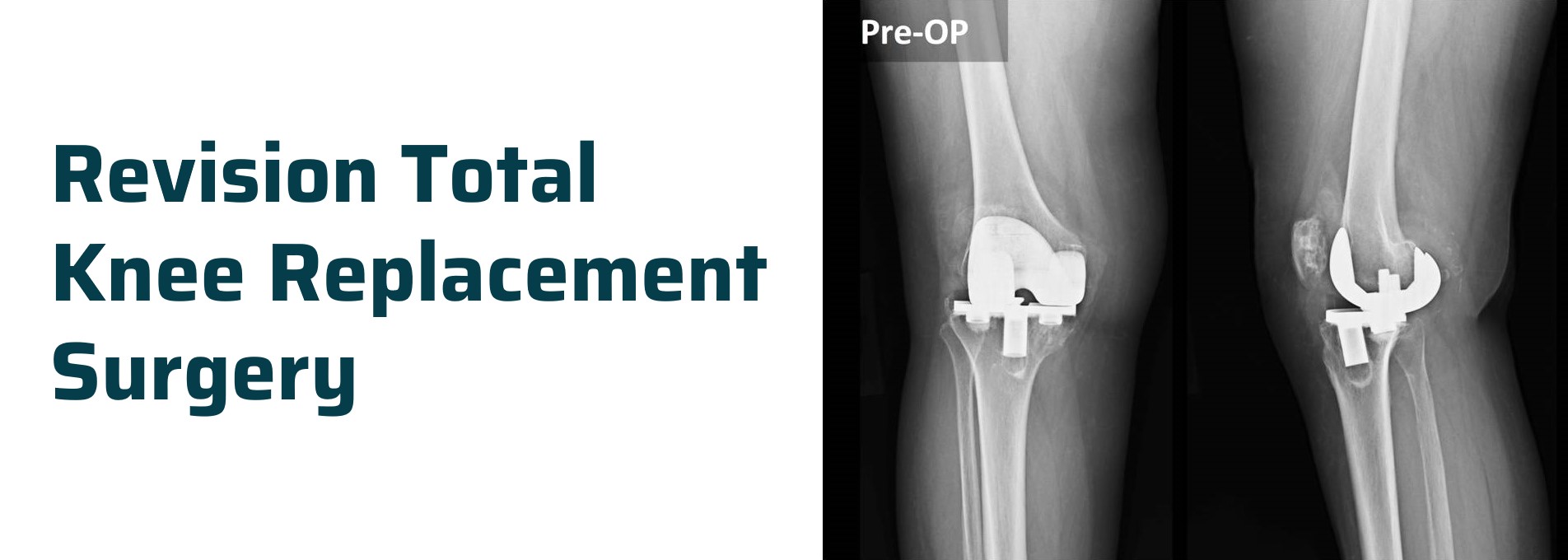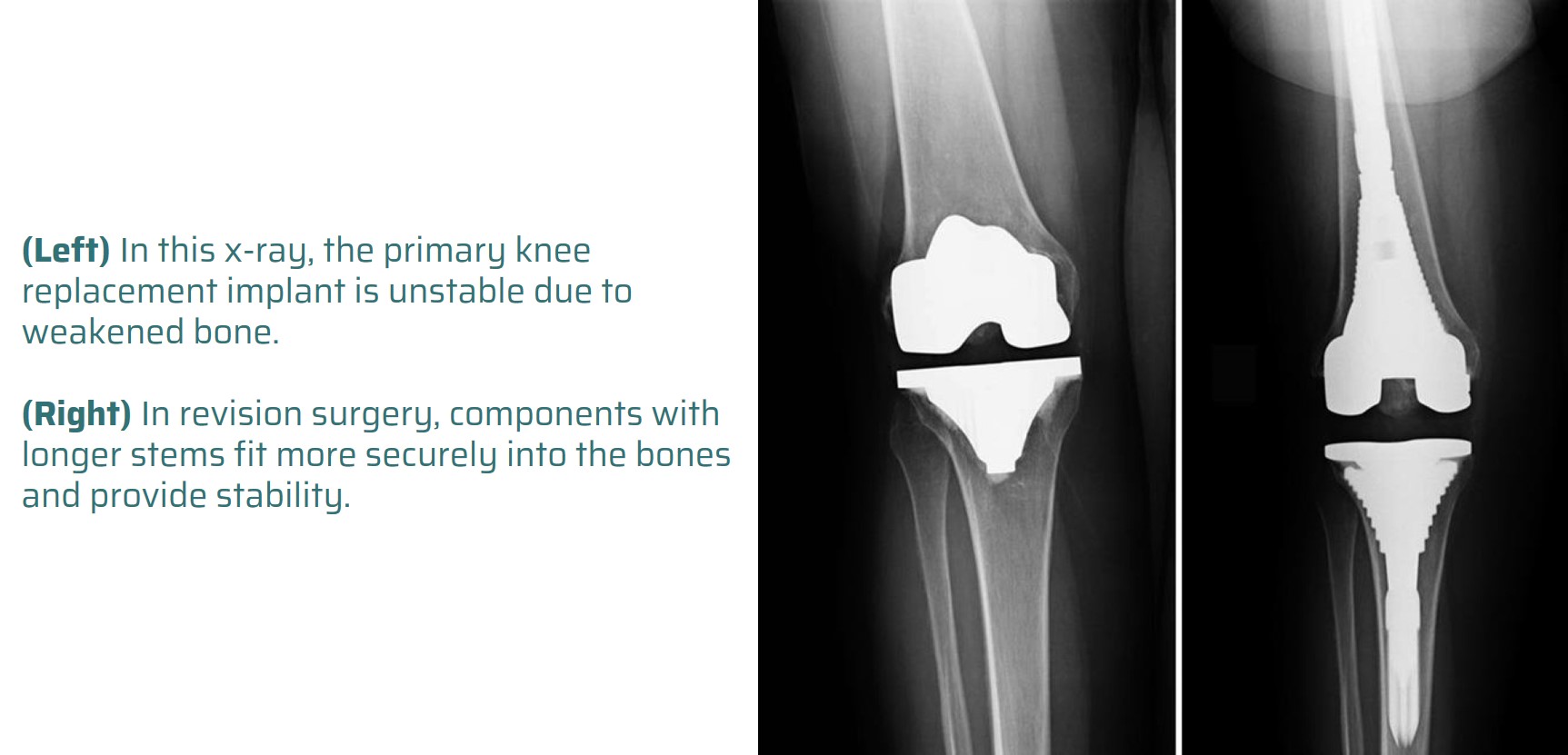
WHAT IS TOTAL KNEE REPLACEMENT REVISION SURGERY?
Although today’s implants are designed to last many years – typically 15 to 20 years, they will break or wear out. When this occurs, your knee can become painful and swollen. It may also feel stiff or unstable, making it difficult to perform your everyday activities.
At this time your doctor may recommend to have a second surgery – revision total knee replacement. In this surgery, orthopaedic surgeon removes some or all of the parts of the original implant/prosthesis and replaces them with new ones.
Revision surgery isn’t something to take lightly. It’s more complicated than a primary total knee replacement (TKR) and entails many of the same risks. Usually the revision surgery is a longer and more complex surgery that requires specialized implants and proper planning to get a desired result.
REASONS FOR REVISION TKR
Regardless of when and why you underwent total or partial knee replacement surgery, there’s a possibility that the components in your artificial knee joint can become worn or fail. When that happens, revision knee replacement surgery may be required.
Short-term revisions
Long-term revisions
WHAT THE REVISION SURGERY ENTAILS
In revision TKR, the prosthetic pieces(s) of the previous (primary) TKR surgery are removed and then new prosthetic pieces are then replaced within knee joint.

(Left) In this x-ray, the primary knee replacement implant is unstable due to weakened bone. (Right) In revision surgery, components with longer stems fit more securely into the bones and provide stability.
CASES OF REVISION TKR
Revision TKR
Multiple failed surgery with non-union. Patient had not walked for 15 years.
Hinged knee with cones for tibial defect
RECOVERY TIME
Afterwards, you’ll undergo a similar recovery and rehabilitation process as someone who receives a primary knee replacement. This includes medication, physical therapy, and the administration of blood thinners to prevent clots.
You’ll initially require an assistive walking device such as a cane, crutches, or walker, and you’ll likely be in physical therapy for three months or longer.
LOOKING FOR A REVISION TOTAL KNEE REPLACEMENT SURGERY/SURGEON IN AHMEDABAD?
Dr. Rachit Sheth is a Consultant Orthopedic Surgeon in Ahmedabad, specializing in total hip and knee replacement surgeries including primary and revision surgery. He and his team of orthopaedic doctors in Ahmedabad, have been treating normal to complex cases with revision knee replacement surgeries with most success ratio.
For appointment or consulting, you can contact us.
